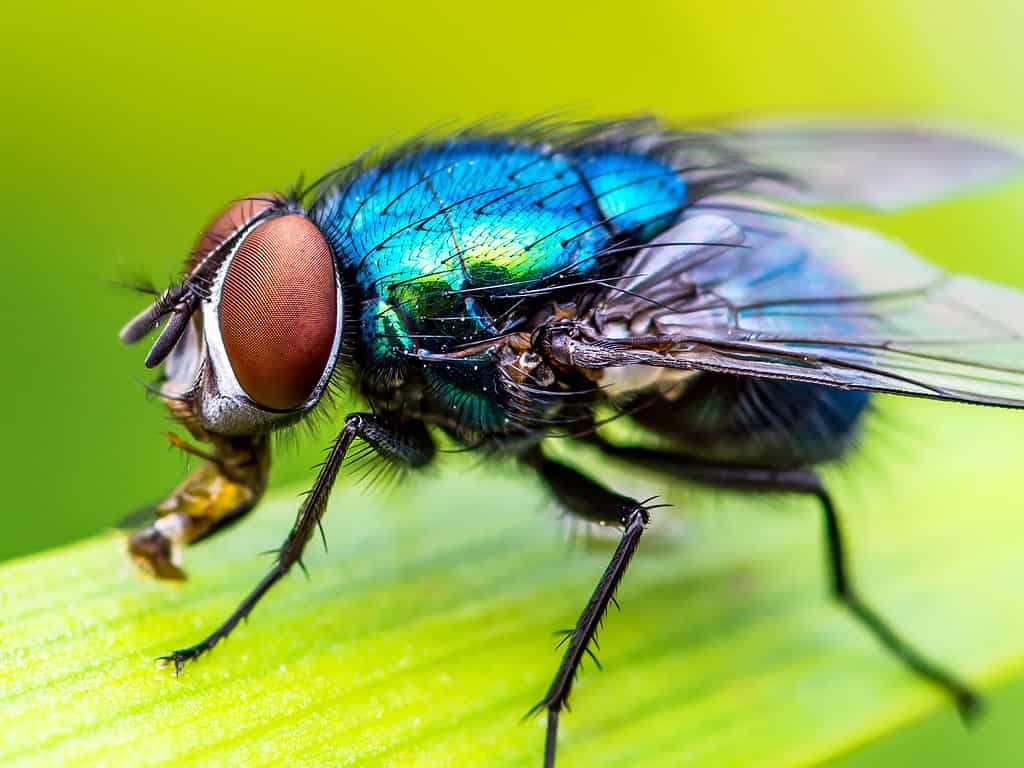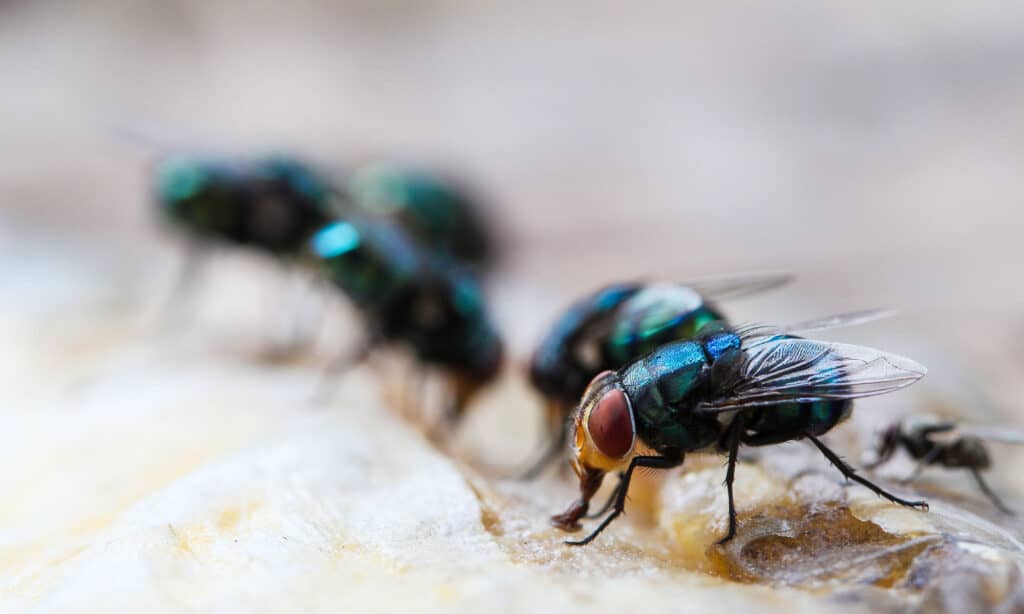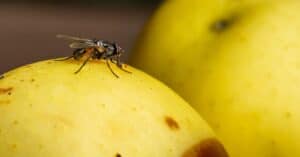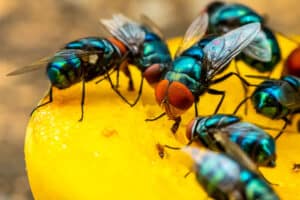You’ve caught yourself looking silly, chasing a fly around desperately with a fly swatter in hand. You move quickly, your eyes darting all over the place, and still — the fly outsmarts you. It’s almost as if it is one or (let’s be honest) several steps ahead of you. You can probably hear it taunting you, “Catch me if you can!” But are flies smart? Do they really know what they’re doing?
Are Flies Smart?
While it may feel like the fly is outsmarting you while you’re experiencing frustration in the moment, the explanation is a bit more complex. Flies experience the world at a different speed than you. It’s kind of like when you’re startled, and your fight/flight/freeze response kicks in. Everything gets slower, giving you more time to act.
You and flies have something in common. You both have eyes that send signals to your brain to interpret the world around you. While it may seem like a continuous flow of information, it’s just your eyes and brain working like pros. Your brain is making sense of short flashes to create the reality you see.
While for you, the speed with which your brain processes the images is about 60 flashes per second, for a fly, it’s about 250 flashes per second. So, while they aren’t developing theoretical concepts while studying the quantum world, they do have a major advantage.

While for you, the speed with which your brain processes the images is about 60 flashes per second, for a fly, it’s about 250 flashes per second.
©nechaevkon/Shutterstock.com
Senses That Drive a Fly’s Behavior
Now you know why flies are so fast. But there are other senses that come into play that help direct how a fly responds to stimuli and adjusts its flight patterns. For example, a fruit fly’s sense of smell is highly attuned, and when it picks up on the sweet and sour scent of rotting fruit, it immediately redirects its flight path.
Typically, fruit flies display erratic flying behavior, yet when their sense of smell is engaged, they pivot as needed to get to the source of food they know and love. Howard Hughes Medical Institute published a study in the Journal of Neuroscience that addresses the ability of fruit flies to integrate the input from their senses. Ultimately, this collaboration between the senses directs them to a specific destination.
What Do Flies Think About?
Well, it’d be nice to know a fly’s exact thoughts, but there is no real way to pick up on what they’re thinking. With fruit flies, however, there have been some experiments. Dr. Van Swinderen from the University of Queensland, Australia, tested the electrical activity in their brains. Surprisingly, fruit flies have their own inner consciousness and are aware that their behaviors have consequences!

Typically, fruit flies display erratic flying behavior, yet when their sense of smell is engaged, they pivot as needed to get to the source of food they know and love.
©BG-Studio/Shutterstock.com
The photo featured at the top of this post is © Abel Tumik/Shutterstock.com
Thank you for reading! Have some feedback for us? Contact the AZ Animals editorial team.







